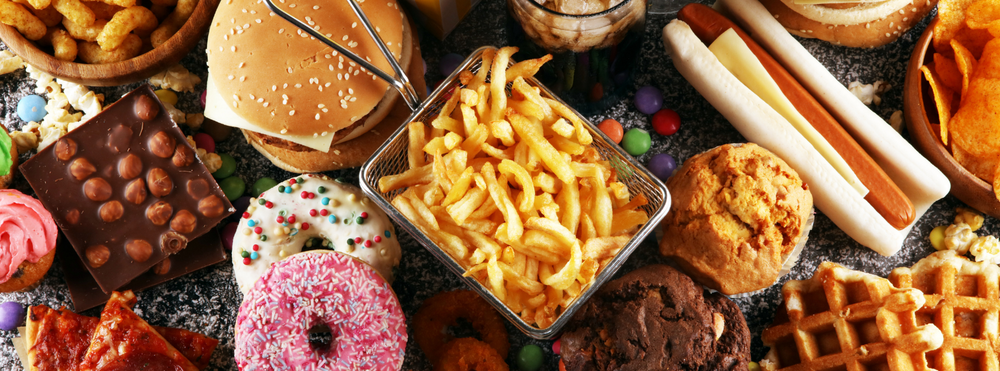Why ultra-processed foods are so bad for us

Food companies are manipulating us, promoting ultra-processed foods that we can’t resist. (By ultra-processed foods, I mean not only traditional junk food such as Cheetos, Mountain Dew, sugary snacks and candy, but also many cereals and even some foods labeled as “healthy.”)
And it’s working. Ultra-processed foods, account for more than 50% of caloric intake in the United States, with people averaging 7.5 servings PER DAY. Unfortunately, these foods are typically calorie dense but nutrient poor, being high in sugar, sodium, and unhealthy fats, and low in fiber and micronutrients (e.g., potassium).
We already know that ultra-processed food is bad for us: studies in recent years have shown relationships between ultra-processed food intake and heart disease, cancer, and even depression.
Now, researchers are starting to parse out exactly why this might be.
Thanks to the ongoing NutraNet-Sante study running in France and Belgium, which has been tracking nutrition habits since 2009 and has a current enrollment of 171,000 people, it may be possible to identify which ingredients contribute to increased risk of getting specific diseases.
The NutraNet researchers’ first stop in their search for a smoking gun (or guns)? Additives.
Using data from NutraNet's biobank of serum, plasma and urine from 20,000 people, plus information on cooking practices and food production procedures, the researchers have estimated people’s exposure to over 330 additives.
Nailing down a cause and effect relationship (which is notoriously difficult to prove) between one or more of these additives and specific disease states will likely be tricky. But my hunch is that they will find evidence of additives wreaking havoc with our bodies. Fun sounding compounds like heterocyclic amines, acrylamide, polychromatic hydrocarbons, and furanes could certainly disrupt our endocrine systems and the microbiome.
Researchers have already had success using the database to link a certain compound present in red meat and cheeses -- Neu5Gc sugar -- to cancer. If you’re a regular reader of this blog, this discovery may not seem so earth shattering. After all, if you look at health patterns around the world, there is almost a linear correlation between meat intake and cancer rates.

Imagine if their examination of additives finds similar links! The implications would be huge. Especially given the dominance of ultra-processed foods in our diets and the fact that teens eat an alarming amount of these products, placing them at even greater lifetime risk.
Regardless of the mechanism or degree of detrimental health effects from any additives in ultra-processed foods, there is no question that ultra-processed foods displace more healthful choices. So not only are we exposing ourselves to potentially harmful foods, we are also depriving ourselves of healthful ones - after all, there is only so much room in our stomachs.
So where do we go from here? If you listen to the scientists, they will tell you that "Reducing the consumption of ultra-processed foods requires additional substantial collaborative policy reform, implementation of widespread educational programs, marketing and labeling changes (such as using NOVA categories to label foods), and improved access to affordable less-processed foods, among other initiatives." Phew!
Or you could just choose Step One Foods.
Guess how many artificial additives Step One Foods contain? Zero. We’ve figured out how to package up whole food nutrients into delicious snacks without using these potentially harmful substances. (No, it’s not easy.)
So keep tearing open our Apple Cinnamon bars to your heart’s content! (No pun intended.) We've not only made the healthy choice the easy choice, we also ALWAYS have your back.

Tested & Proven Results.
- Cardiologist formulated
- Supported by over 500 publications
- Clinically-proven, in a double-blind randomized trial with Mayo Clinic and The University of Manitoba
80% of participants lowered their cholesterol in just 30 days. With just two servings per day, Step One Foods offers a proven-effective way to naturally lower LDL (bad) cholesterol.
Get heart health tips and articles like this, delivered right to your email.
New articles every week.
You may also like...

The Next Super Food: How Pecans Help Lower Cholesterol

You don’t need to avoid foods with cholesterol…except for these



